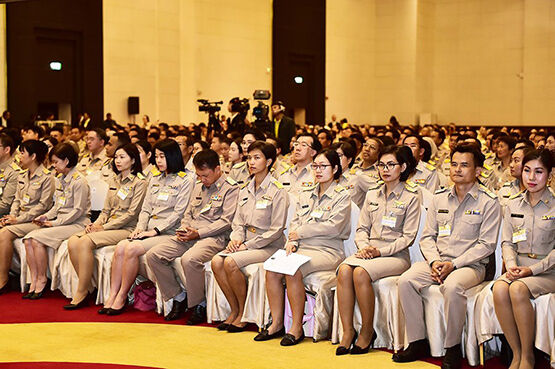Thailand’s civil servants to receive 20% salary increase over two years

Newly recruited civil servants in Thailand are set to receive a salary increase of 20% over the next two years. The decision, approved by the Cabinet, was announced by Danucha Pichayanan, the secretary-general of the National Economic and Social Development Council.
The proposed plan by the Office of the Civil Service Commission (OCSC) is to increase salaries by 10% annually in the fiscal years 2024 and 2025.
As a result of this decision, the baseline monthly salaries for new civil servants will rise from 15,000 baht to 18,000 baht. The first phase of this hike will be implemented from May next year, following the release of the annual budget.
The salary adjustment will not be limited to new recruits. It will also be applied to longstanding civil servants in positions below the C8 level earning less than 18,000 baht per month. These individuals will see their salaries increase beyond the revised rate set for new officials.
The government is estimated to spend an initial amount of around 6 billion baht for the salary increase. The funds are expected to come from a central budget allocated for emergency use. However, the cost of the increase in the following fiscal year is projected to exceed 10 billion baht.
Representatives from the OCSC, the Comptroller General’s Department, and the Finance Ministry will convene to discuss the proposed increase and establish a clear budget plan for the salary adjustments, reported Bangkok Post.
The move comes as part of the government’s efforts to streamline the bureaucracy by employing a leaner state sector workforce, according to Danucha.
Dr Prommin Lertsuridej, the secretary-general to the prime minister, elaborated on the OCSC’s proposal. He stated that the salary increase aims to enhance the competitiveness of state agencies against the private sector, with particular emphasis on fair treatment for new recruits. The salary increase will be adjusted according to officials’ positions.
However, this plan has drawn criticism from academics who argue that it will impose a significant strain on the state budget and could potentially impact expenditure in other areas.
Phiphat Ratchakitprakarn, the Minister of Labour, earlier this month revealed plans to increase the minimum daily wage as well, although the rate will remain below 400 baht. The proposed 400-baht rate is expected to be implemented towards the end of next year in specific provinces.
Latest Thailand News
Follow The Thaiger on Google News:


























